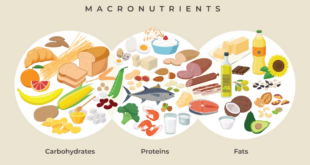The Benefits of Eating Whole Grains Every Day

In today’s fast-paced world, people are increasingly turning towards more convenient food options that are quick to prepare and easy to consume. Unfortunately, many of these options are highly processed and often lack essential nutrients. One of the simplest yet most effective ways to enhance your diet and improve your overall health is by including whole grains in your meals. Whole grains are an incredible source of essential nutrients such as fiber, vitamins, and minerals that can support various bodily functions and prevent chronic diseases.
While refined grains, such as white rice, white bread, and pasta, have become staples in many people’s diets, they lack the full nutritional profile of whole grains. Whole grains, on the other hand, retain the bran, germ, and endosperm, offering a more complete nutrient package. In this article, we’ll explore the numerous benefits of eating whole grains every day, from boosting heart health to improving digestion and supporting weight management.

What Are Whole Grains?
Whole grains are grains that have not been refined and contain all three parts of the grain: the bran, germ, and endosperm. These parts provide a wide range of nutrients that are often stripped away during the refining process. Examples of whole grains include:
- Oats
- Brown rice
- Quinoa
- Whole wheat
- Barley
- Bulgur
- Farro
- Rye
Each of these whole grains can be consumed in various forms, from whole grain flour to whole kernels, making them an easy addition to any meal.
Tìm hiểu thêm tại đây: 365tastes.com
1.The Benefits of Eating Whole Grains Every Day – Improved Heart Health
One of the most significant benefits of eating whole grains is their positive impact on heart health. Whole grains are rich in fiber, particularly soluble fiber, which has been shown to reduce cholesterol levels. High cholesterol is a significant risk factor for heart disease, and by incorporating whole grains into your diet, you can help manage and reduce this risk.

In addition to soluble fiber, whole grains are also rich in antioxidants and phytochemicals. These compounds help protect the heart by reducing inflammation and oxidative stress, both of which are linked to heart disease. Studies have consistently shown that people who consume whole grains have a lower risk of developing cardiovascular diseases, including coronary heart disease and stroke.
Research suggests that a diet high in whole grains can help lower blood pressure, another key factor in heart disease. By regularly consuming whole grains, such as oats and barley, which are high in beta-glucan (a type of soluble fiber), you can help lower your systolic blood pressure, improving heart health in the long term.
2. Weight Management
If you’re trying to manage your weight or maintain a healthy body weight, whole grains should be an essential part of your diet. Whole grains are rich in fiber, which helps to keep you feeling full for longer periods. This satiety can prevent overeating and reduce overall calorie intake throughout the day.
The fiber found in whole grains also supports healthy digestion and promotes regular bowel movements. When you consume fiber-rich foods, such as whole grain bread or brown rice, your body processes food more efficiently, which can help you avoid constipation and support a healthy metabolism.
Moreover, whole grains are often lower in calories compared to refined grains, which tend to be more processed and calorie-dense. By replacing refined grains with whole grains, you’re likely to reduce your overall calorie consumption while still receiving the essential nutrients your body needs.
3.The Benefits of Eating Whole Grains Every Day – Enhanced Digestion
One of the most well-known benefits of eating whole grains is their ability to improve digestion. Whole grains are an excellent source of dietary fiber, which plays a critical role in maintaining healthy digestion. Fiber adds bulk to stool, making it easier for the body to move waste through the digestive system. As a result, individuals who eat a diet rich in fiber from whole grains are less likely to suffer from constipation and other digestive disorders.
Additionally, whole grains contain prebiotics, which promote the growth of beneficial gut bacteria. A healthy gut microbiome is essential for optimal digestion and overall health. These prebiotics found in whole grains, such as oats and barley, help nourish the gut flora, which can improve immune function and nutrient absorption.
Whole grains also contribute to gut health by reducing the risk of developing digestive diseases like irritable bowel syndrome (IBS) and colorectal cancer. The high fiber content in whole grains can reduce inflammation in the intestines, promoting a healthy and balanced digestive system.
4. Lower Risk of Type 2 Diabetes
In addition to benefiting the heart and digestive system, whole grains have been linked to a lower risk of developing type 2 diabetes. Whole grains have a lower glycemic index (GI) compared to refined grains. The glycemic index measures how quickly a food causes a rise in blood sugar levels. Foods with a high GI cause a rapid increase in blood sugar, while foods with a low GI lead to a slower, more controlled increase.
Because whole grains are digested more slowly, they help maintain stable blood sugar levels and prevent insulin spikes. This makes them an excellent choice for those looking to manage their blood sugar levels, especially for individuals with prediabetes or at risk of developing type 2 diabetes.
Furthermore, the fiber content in whole grains helps improve insulin sensitivity, a critical factor in preventing type 2 diabetes. Studies have shown that individuals who consume whole grains regularly have a significantly lower risk of developing insulin resistance, a key precursor to diabetes.
5.The Benefits of Eating Whole Grains Every Day – Better Brain Function
Whole grains are not only beneficial for your body, but they also play a crucial role in supporting brain health. Whole grains like oats and quinoa are rich in B vitamins, which are essential for brain function. These vitamins, particularly folate, thiamine, and niacin, help improve cognitive function and support the health of the nervous system.

The fiber and complex carbohydrates found in whole grains also provide a steady supply of glucose, the brain’s primary energy source. Unlike refined grains, which can cause blood sugar levels to spike and crash, whole grains help maintain consistent energy levels throughout the day, keeping your brain sharp and focused.
Furthermore, whole grains contain antioxidants that help protect the brain from oxidative stress, which can contribute to neurodegenerative diseases like Alzheimer’s and Parkinson’s. By consuming whole grains daily, you are helping to protect and support brain function over time.
6. Boosted Immune System
Whole grains are packed with essential nutrients that help boost the immune system, making them a vital part of a diet aimed at preventing illness. The vitamins and minerals found in whole grains, such as zinc, iron, and vitamin E, play a key role in supporting immune function. These nutrients help the body fight off infections and repair damaged tissues.
The fiber in whole grains also promotes a healthy gut microbiome, which is essential for proper immune function. A balanced gut microbiome helps regulate the body’s immune response, reducing inflammation and enhancing the body’s ability to fight infections.
By eating a variety of whole grains, such as oats, barley, and quinoa, you are ensuring that your immune system is well-equipped to defend against harmful pathogens.
7.The Benefits of Eating Whole Grains Every Day – Healthy Skin and Hair

Eating whole grains can also benefit your skin and hair. The vitamins and minerals found in whole grains, such as zinc, iron, and vitamin E, are essential for maintaining healthy skin and promoting hair growth. Zinc, in particular, is vital for the production of collagen, a protein that helps keep the skin firm and elastic.
Whole grains also provide a steady source of B vitamins, which are crucial for maintaining a healthy scalp and promoting hair growth. These nutrients help nourish the skin and scalp, preventing dryness, inflammation, and other skin conditions that can affect hair health.
8. Support for Healthy Aging
Whole grains contain a variety of antioxidants, vitamins, and minerals that help protect the body from the damaging effects of free radicals. These free radicals contribute to aging and the development of chronic diseases such as heart disease, cancer, and arthritis. By eating whole grains every day, you can help slow down the aging process and reduce your risk of age-related illnesses.
The fiber found in whole grains also supports healthy cholesterol levels and blood pressure, both of which are important factors in maintaining good health as you age. Whole grains provide nutrients that promote longevity, making them an excellent choice for a diet focused on healthy aging.
9.The Benefits of Eating Whole Grains Every Day – Healthy Gut Microbiome

The gut microbiome plays a crucial role in overall health, and eating whole grains is one of the best ways to support a healthy gut. Whole grains are an excellent source of prebiotics, which are compounds that help nourish the beneficial bacteria in the gut. A healthy gut microbiome is essential for proper digestion, immune function, and even mental health.
By incorporating whole grains into your daily diet, you are providing your gut with the necessary nutrients to thrive, helping to prevent digestive issues and promote optimal health.
10. How to Incorporate Whole Grains into Your Diet
Incorporating whole grains into your diet is simple and easy. Here are some practical ways to include more whole grains in your meals:
- Swap refined grains for whole grains: Choose whole wheat bread, brown rice, quinoa, and whole grain pasta instead of refined options.
- Start your day with whole grains: Enjoy a warm bowl of oatmeal or quinoa porridge for breakfast.
- Snack on whole grains: Choose snacks like popcorn, whole grain crackers, or granola for a healthy option.
- Use whole grains in salads: Add farro, barley, or bulgur to your salads for added texture and nutrition.
- Bake with whole grain flour: Use whole wheat flour or oat flour in your baking to increase fiber content.
Conclusion: The Power of Whole Grains in a Healthy Diet
Incorporating whole grains into your daily diet offers a wide range of health benefits that can enhance your overall well-being. From improving heart health to supporting digestion, boosting immunity, and even promoting healthy skin and aging, whole grains are a powerhouse of essential nutrients that are often overlooked in modern diets. These nutrient-dense foods, rich in fiber, antioxidants, vitamins, and minerals, provide your body with the fuel it needs to thrive.
By choosing whole grains over refined grains, you are making a simple yet powerful change that can have a lasting positive impact on your health. Whether you’re looking to support your immune system, maintain a healthy weight, or boost your digestive health, whole grains are an excellent addition to your meals.
Remember, small changes in your diet can lead to big improvements in your health over time. So, start incorporating more whole grains like brown rice, quinoa, barley, and oats into your meals, and enjoy the long-term benefits of a more nutritious and balanced diet. With their numerous health benefits, whole grains are not just a food choice but a lifestyle choice that promotes overall health and wellness.
By including whole grains in your diet every day, you’re making a conscious effort to take care of your body from the inside out. Your immune system, heart, digestive system, and overall health will thank you for this small yet impactful dietary shift. Make the switch to whole grains today, and enjoy the many benefits they bring to your health and lifestyle.
 Tastes | Live healthy every day
Tastes | Live healthy every day

